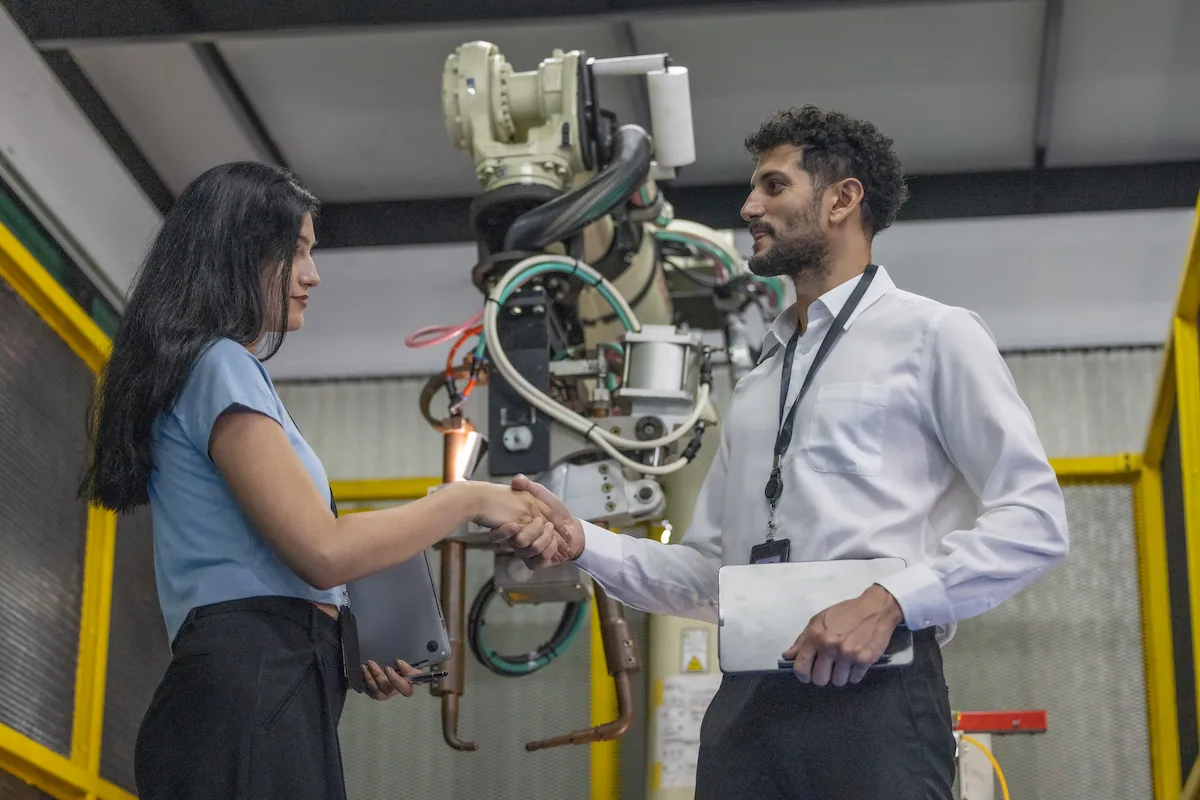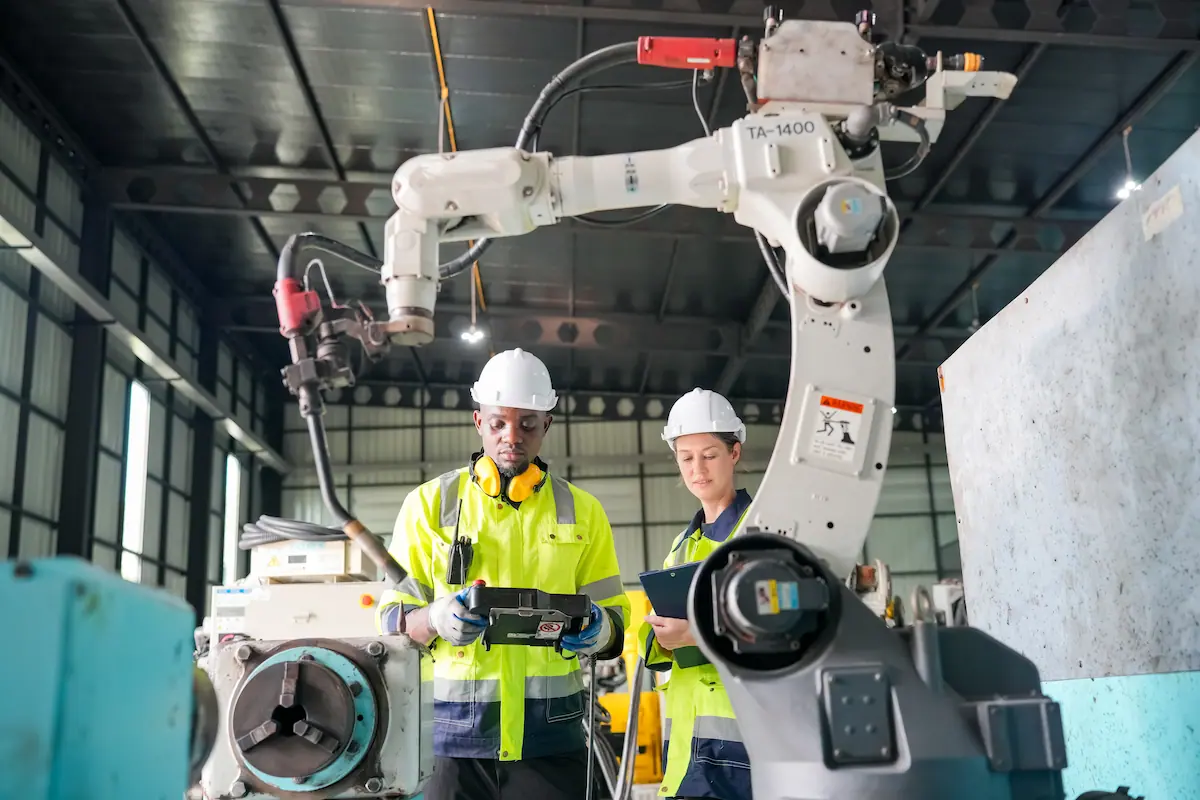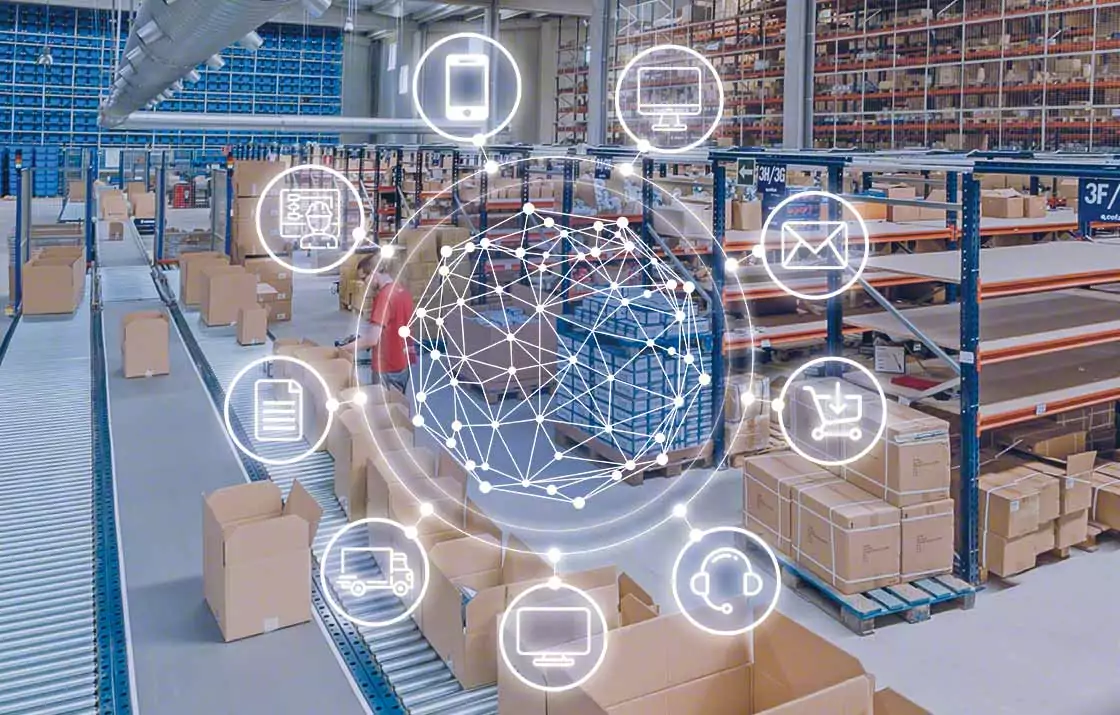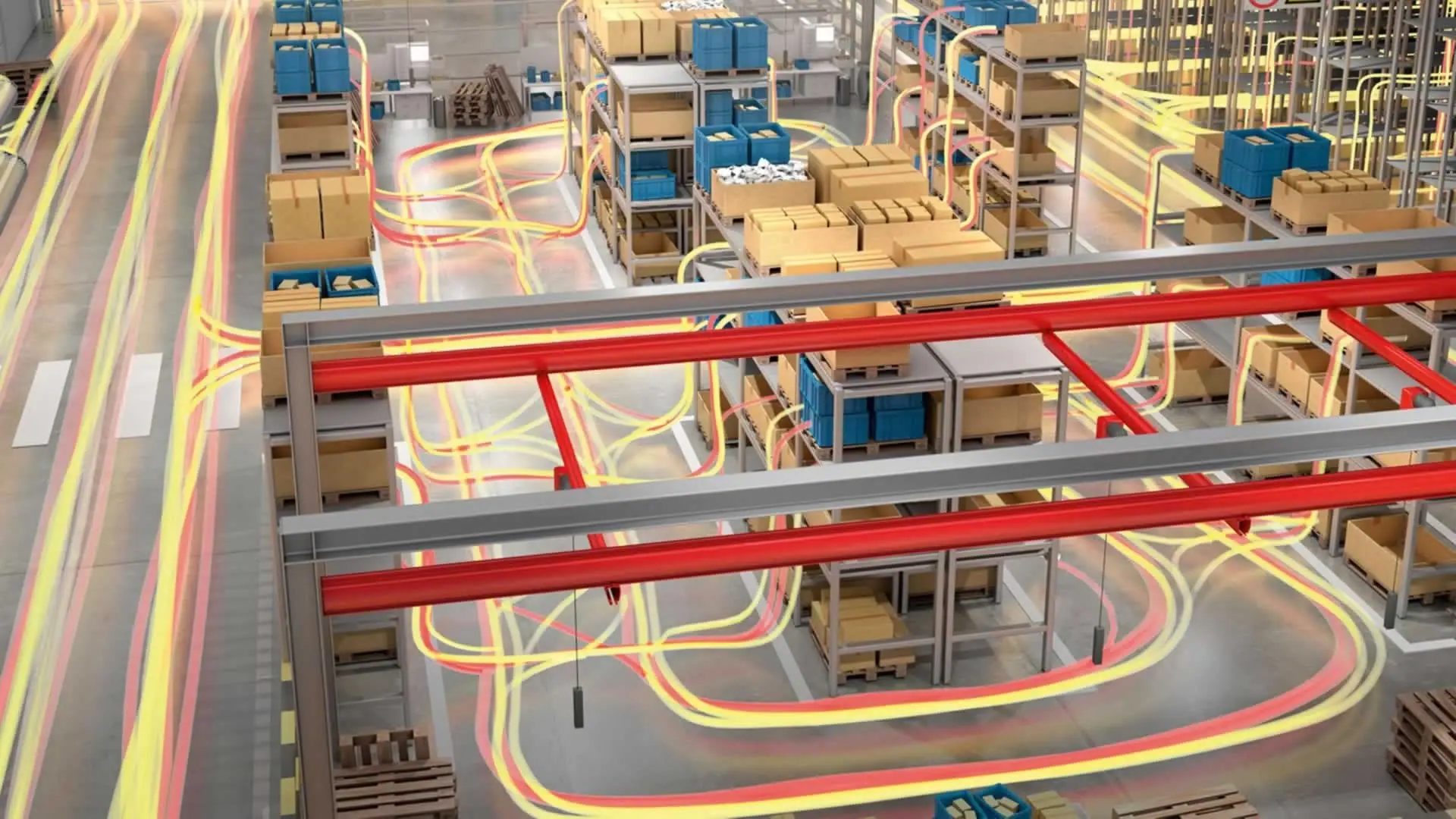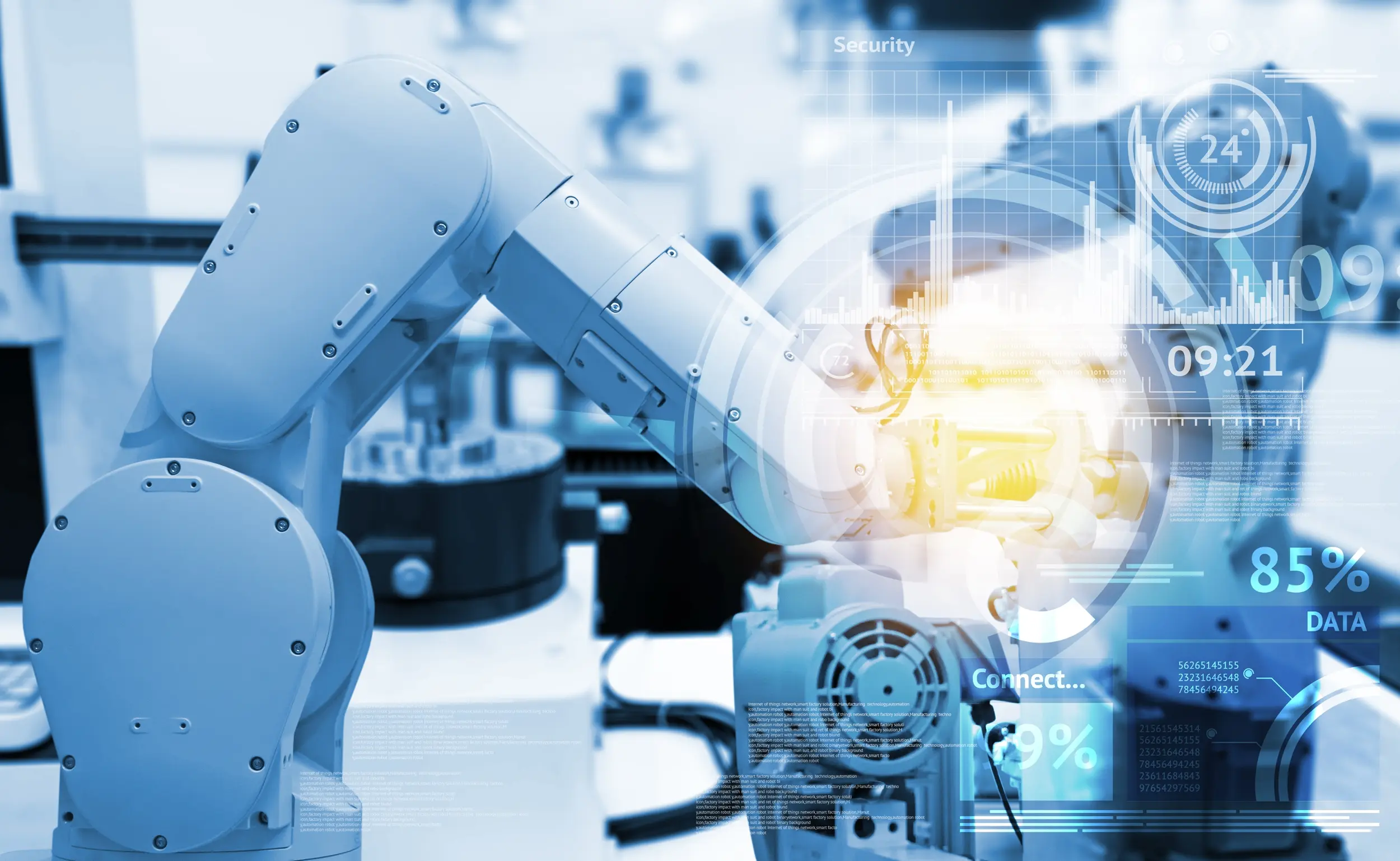If you work in the food industry, you have probably already come to terms with the chaos that reigns in warehouses. Between deadlines that seem to chase you, regulations that have to be met and a thousand other things to do, managing a warehouse can become a real nightmare. Yet, there is good news: you can change everything, and you don't need to be a logistics wizard to do it. How? With automation. Yes, that's exactly the key to transforming your warehouse from a disorganised place to a super-efficient environment. But wait, let's go step by step.
Imagine a Perfect Warehouse
Let's say you wake up one morning, arrive at the warehouse and... everything is in the right place. The stock is rationally arranged, the temperatures are perfect, nothing is out of place and you don't have to deal with the chaos that usually greets you as soon as you walk in. Does that sound too good to be true? But no, it is possible. With automation, this scenario can become your reality. I am not talking about some kind of space technology, but about solutions that, if implemented well, can really do wonders for your warehouse.
Imagine that not only stock is better managed, but that you also have everything under control. Every item is monitored in real time, temperatures are always within the norm and deadline management is no longer an issue. This means less stress and more time to focus on what really matters, such as improving customer service or optimising other aspects of your work. It really is a plus.
Automation Changes Your Life (And Your Warehouse)
OK, but how does it work? I'll explain it to you straight away, in no uncertain terms.
1. Efficiency and Speed
Imagine walking into your warehouse and seeing everything in its right place. The products are cleverly organised, every nook and cranny is exploited to the full and the time you spent looking for something? Simply gone. Automated solutions do just that: they reduce the time you spend looking for, moving and shifting goods. And once the automation kicks in, the flow becomes almost natural. Every operation is faster and more precise, without having to ask where that box you needed ten minutes ago is. Work becomes fluid, and the warehouse seems to 'live' on its own.
2. Real-Time Traceability
One of the best things about automation is that it allows you to keep everything under control, in real time. Remember that moment when a product was about to expire, but you didn't realise it until the last minute? Or when you had a problem with a shipment because you could no longer find the right product? Well, with automation these things don't happen. Automated systems warn you when a product is about to expire, tell you when it is time to reorder, and allow you to monitor every step from receipt to dispatch. It's like having a watchful eye telling you what's going on at all times.
3. Maintaining Quality
In the food industry, quality is everything. Stocks must be carefully managed, and every product must be stored under ideal conditions. With automation, you can continuously monitor temperature, humidity and other vital factors to keep products fresh. You no longer have to worry about finding a damaged box or losing a batch of products through human error. It's extra security for your business.
4. Fewer Human Mistakes
We are all human, and we make mistakes. But in warehouse work, even the smallest mistake can cause big problems. And this is where automation really helps. With automated systems, the risk of human error decreases significantly. Products are picked, stored and tracked with the utmost precision, without the need to pay attention to every single detail. It is like having a team of robots working for you, but without the risk of someone forgetting a step.
Concrete Successes: Proof That Works
You are probably asking yourself, "OK, but does automation really work?" The answer is yes, and the stories of those who have already implemented it speak for themselves. Take for example Kaufland, one of the largest retail chains in Europe, which transformed its warehouse with a centralised automated system. The result? An increase in productivity and much more efficient stock management.
Even Amazon has taken a step forward with the robots that manage its warehouses. Logistics has become so efficient that they can now dispatch a parcel in record time. These examples are not just isolated cases, but show that automation is a gear shift that can really make a difference. And you don't have to be a multinational company to benefit from it. Even small and medium-sized companies are finding automated solutions that fit their needs.
Italy is Already Investing in Automation
And if you think automation is only for international giants, you are sadly mistaken. In Italy, companies like TOD System are bringing innovations to the food sector, with solutions that help companies improve warehouse management, reduce errors and optimise logistics. This is not something from the future, it is already a reality, and those who have invested in these technologies have seen real improvements, both in terms of productivity and efficiency.
Don't Wait, the Future is Already Here
Imagine walking into your warehouse and seeing everything in order, without the usual clutter. With automation, this is not a dream, but a real possibility that you can exploit today. And you don't even have to wait to make a billion-dollar investment to get started. There are scalable solutions that adapt to your needs, whether you have a small warehouse or a larger logistics centre. Every step you take in this direction brings you closer to an easier, less stressful and much more productive job.
So what are you waiting for? Automation is the answer to the chaos you carry around with you every day. Don't miss the opportunity to improve your management and make your warehouse work much easier. If you are ready to find out how to take the first step, just do some research, talk to an expert and find out which solutions are right for you. Automation is within your reach, and if you stop and think about it, you will see that it will really change your life.

